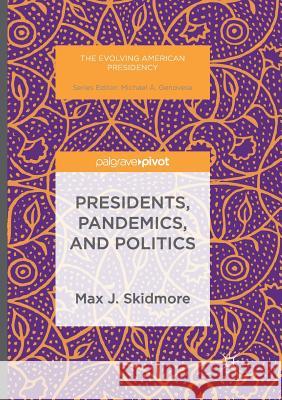Presidents, Pandemics, and Politics » książka
topmenu
Presidents, Pandemics, and Politics
ISBN-13: 9781349956982 / Angielski / Miękka / 2018 / 97 str.
Kategorie BISAC:
Wydawca:
Palgrave MacMillan
Seria wydawnicza:
Język:
Angielski
ISBN-13:
9781349956982
Rok wydania:
2018
Wydanie:
Softcover Repri
Ilość stron:
97
Waga:
0.14 kg
Wymiary:
21.01 x 14.81 x 0.56
Oprawa:
Miękka
Wolumenów:
01
Dodatkowe informacje:
Wydanie ilustrowane











